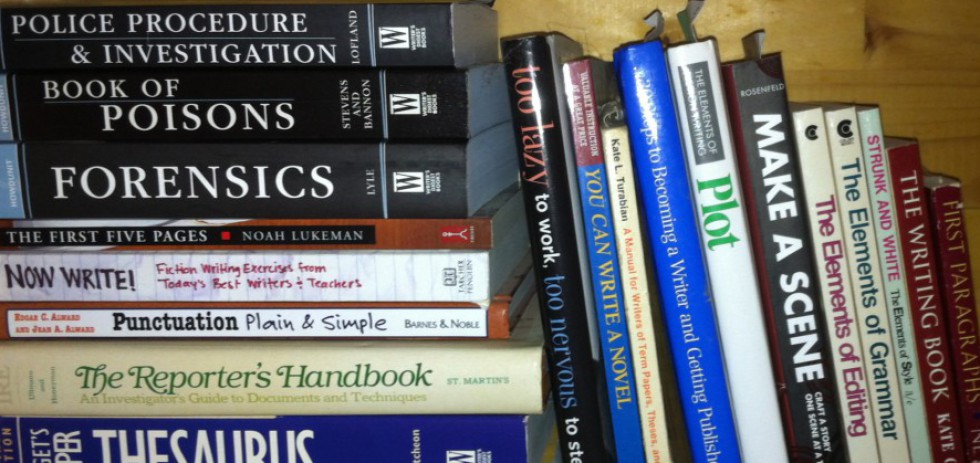Is Something Wrong With That Title?
By Annette Rey
I suppose most people do not pay much attention to punctuating their sentences. It’s questionable whether they consider what constitutes a complete sentence. But writer’s must pay heed to these rules for effective communication with their reader.
The main title above is missing a comma. Without a comma after the word Help, the reader’s eye (and brain) just flows along and by the end of the line he says, “huh?”.
A comma causes the brain to pause and prepare itself for additional information. A reader becomes confused when a comma has been omitted which causes him to backtrack and re-read the sentence to try to make sense of it.
When a new program appeared in my onscreen television menu, it caused me much consternation. Meet Marry Murder. I asked myself, is this a story about a sleuth by the name of Marry Murder? I don’t know how many times I read these few words and did not arrive at a believable conclusion. It turns out to be a crime program which focuses on deadly relationships, something that could have been made crystal clear by simply adding commas to the title!!! Meet, Marry, Murder!!! You can tell I’m still upset about this disregard for our most necessary comma.
Granted, some people are comma crazy. Others, not so much. That’s why consistency is important.
I read Eats, Shoots and Leaves, a British bestseller book on punctuation. That’s right. Bestseller. (So don’t think your book doesn’t have a chance.) The author, Lynne Truss, is, not surprisingly, British. The book is a great read and I share her passion for correct punctuation. The caveat here for American readers is, the British do things differently than we do.
The British use common words Americans know and apply them to totally different objects than Americans do. As in, boot for the trunk of a car, brolly for umbrella, loo for toilet, and the list goes on and on. I’m in agreement with George Bernard Shaw who is quoted as having said, “England and America are two countries separated by a common language.”
The British way of communicating is a most delightful and colorful way to speak, but can cause confusion for writers submitting their work from America to Britain and vice versa.
British spelling and punctuation differs from American rules, as well. Firstly, in the title of Lynne’s book, Americans would add a comma after Shoots. As for spelling, do you know that judgment in America is judgement in Britain? If you are writing about a British character, you can make him more identifiable by using British spelling in his dialogue. For instance, use colour instead of color, programme instead of program (unless you are referring to a computer program), queue in reference to a line of waiting people. Do some research to make your writing and your characters more reliable.
Writers must continue to gather information to improve their writing ability.
The following link will help you broaden your knowledge base.
https://grammar.yourdictionary.com/spelling-and-word-lists/correct-spelling-of-words.html
Write on!

I have always been bas at puntuation, aand my children are good at it. We have some terrible battles.
;;
;;
;;
Laugh! It just makes sense
LikeLike